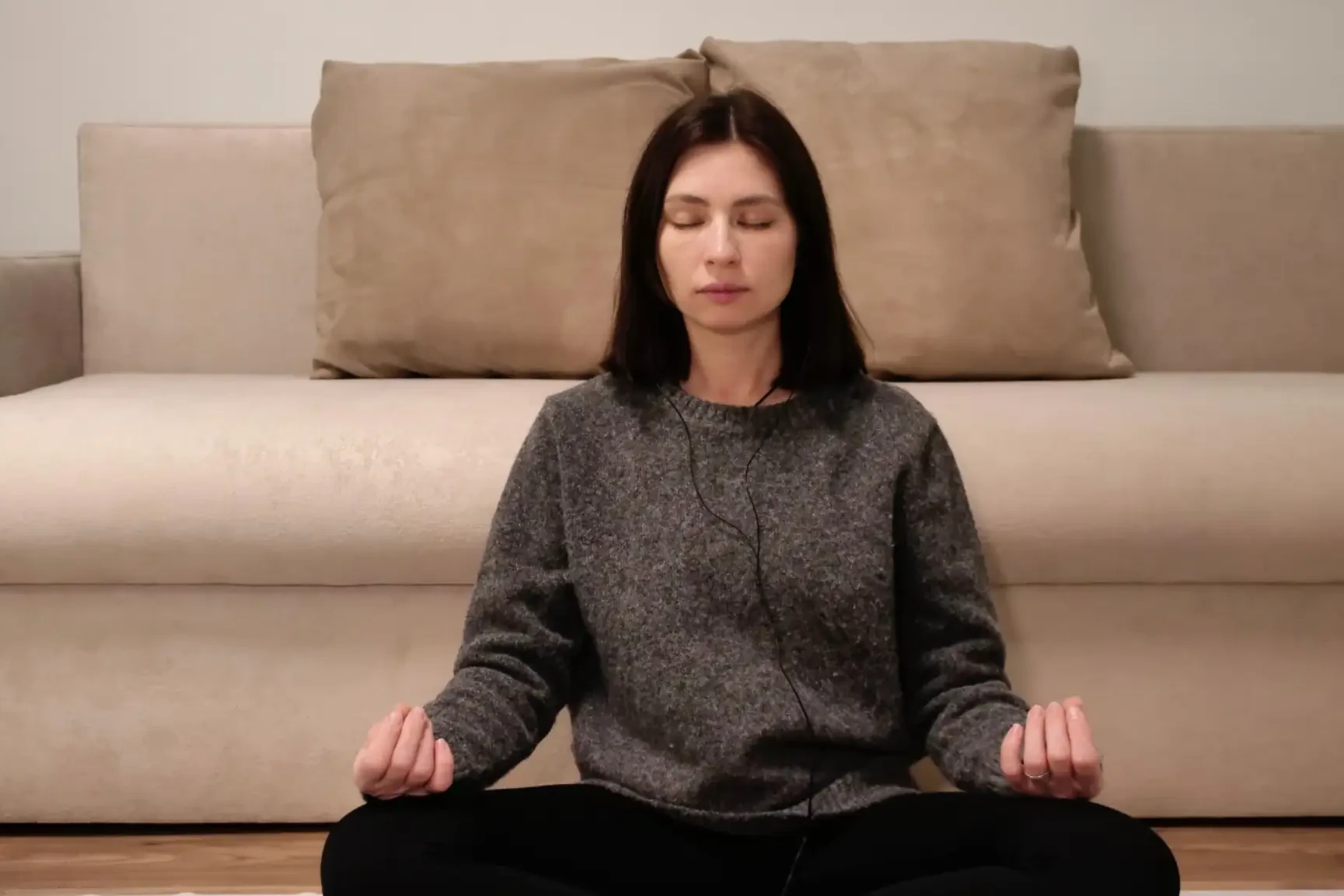Hello, new parents! Congratulations on your bundle of joy! If you’re reading this, you’re probably in the midst of adjusting to life with a newborn and trying to figure out how to get some good sleep. You’ve likely heard the advice “sleep when the baby sleeps,” but let’s be real, it’s not always that easy.
In this blog, we dive deep into sleep hygiene, explain how routines help both baby and parent, and offer solid tips beyond the usual advice.
In this blog, we will explore why traditional tips fall short, unpack real science, show newborn patterns, and share 12 easy ways to improve sleep hygiene now.
Table of Contents
ToggleWhy Traditional Advice Falls Short?
Here’s why “sleep when baby sleeps” doesn’t solve everything.
“Sleep When Baby Sleeps”—Where Did This Advice Come From?
This phrase aims to help new parents grab rest during baby’s naps. But it misses the true work parents need to manage.
Why It Doesn’t Work for Everyone
This advice fails due to:
Daily chores & emotional stress: You still have cooking, cleaning, and bills.
Inconsistent baby sleep: Babies wake often.
Mental load & postpartum anxiety: Worry and overthinking block rest.
The Real Impact of Sleep Deprivation
CDC reports 1 in 3 adults gets less than 7 hours of sleep weekly.
Chronic lack of rest affects mood, memory, reaction, the immune system, weight, and blood pressure.
When parents miss real sleep, simple advice can’t help.
Read: Breastfeeding and Postpartum Depression: What You Should Know | Dr. Chandril Chugh
Newborn Sleep Patterns: What You’re Really Dealing With?
Understanding your baby’s sleep helps build realistic sleep hygiene.
Why Newborns Wake Frequently?
Their REM cycles are short (50–60 minutes).
They need frequent feedings (every 2–3 hours) due to small stomachs.
Age-Based Sleep Expectations
| Baby Age | Night Sleep Total | Longest Stretch | Feeds per Night |
|---|---|---|---|
| 0–3 months | 8–9 hours total | 2–3 hours | 3–5 feeds |
| 3–6 months | 9–11 hours | 3–4 hours | 2–4 feeds |
| 6–12 months | 11–12 hours | 5–6 hours | 1–2 feeds |
When to Expect Longer Sleep Windows?
Typically around 3–4 months. Encourage self-soothing but expect setbacks.
12 Tips for Sleep Hygiene with a Newborn

First things first, newborns have tiny tummies and need to eat frequently, so their sleep patterns are quite different from ours. They often sleep in short bursts and wake up every few hours. As a parent, this means your sleep schedule will be interrupted too. But don’t worry, there are ways to make it work.
Tips for Better Sleep Hygiene with a Newborn
1. Create a Calm Sleep Environment:
Make your bedroom a sleep sanctuary. Keep it cool, dark, and quiet. Use blackout curtains to block out street lights, and consider a white noise machine to drown out sudden noises that could wake you or the baby. The goal is to create an environment that promotes relaxation and sleep for both you and your little one.
2. Establish a Bedtime Routine for the Baby:
Babies respond well to routines. A consistent bedtime routine might include a warm bath, gentle baby massage, soft lullabies, and a quiet feeding. These activities signal to your baby that it’s time to wind down. The more relaxed your baby is, the easier it will be for them (and you) to fall asleep.
3. Take Turns with Your Partner:
If you have a partner, work out a schedule where you take turns caring for the baby during the night. This could mean alternating feedings or having one person be ‘on duty’ for a stretch while the other sleeps. Sharing the load can help both of you get more continuous sleep.
4. Daytime Naps for Parents:
When your baby naps during the day, try to take a nap yourself. Even a 20-30 minute nap can significantly reduce sleep deprivation and improve your mood and alertness.
5. Stay Active and Get Sunlight:
Engage in light exercise, like walking with your baby in a stroller. Exposure to natural light during the day helps regulate your own sleep-wake cycle and can boost your mood and energy levels.
6. Simplify Nighttime Feedings:
Organize a small station near your bed with essentials for nighttime feedings and changes. This might include bottles, burp cloths, diapers, and a change of clothes for the baby. For breastfeeding mothers, a comfortable nursing pillow and water bottle for hydration can be very helpful.
7. Avoid Over-Stimulation at Night:
Keep nighttime interactions calm and soothing. Use a soft light for feedings and changes. Avoid engaging in playful activities with the baby during the night, as this can signal to them that it’s time to be awake.
8. Accept Help:
If friends or family offer to help, say yes. Having someone else watch the baby even for a couple of hours so you can rest can be incredibly beneficial. Don’t hesitate to reach out to your support network.
9. Stay Hydrated and Eat Well:
Nutrition plays a key role in how you feel, including your sleep quality. Eat a balanced diet and drink plenty of fluids, especially if you are breastfeeding. Avoid heavy meals and caffeine close to bedtime.
10. Practice Relaxation Techniques:
Learn and practice relaxation techniques such as deep breathing, progressive muscle relaxation, or guided imagery. These techniques can help you unwind and make it easier to fall asleep when you have the chance.
11. Communicate with Your Partner:
Open communication with your partner about how you’re feeling and what you need can make a big difference. Working as a team and supporting each other can help both of you manage the new responsibilities and stressors.
12. Be Flexible and Patient:
Understand that some nights will be easier than others. Be flexible with your routines and patient with yourself and your baby. It’s okay if everything doesn’t go as planned. What’s important is finding what works best for your family.
The Reality of Sleep with a Newborn
- Sleep Comes in Short Bursts: With a newborn, you’re likely to get sleep in shorter intervals. It’s common to feel like you’re not getting enough continuous sleep, and that’s okay. This is a normal part of caring for a newborn.
- Every Baby is Different: Each baby has unique sleep habits. Some might start sleeping through the night earlier than others. Comparing your situation to others can be misleading and add unnecessary stress.
- Learning and Adapting: As a new parent, you’ll gradually learn what works best for your baby and your family. This learning process is natural and takes time. Be patient with yourself and your baby as you navigate this new terrain.
It’s a Phase: Remember, this phase of frequent night wakings and irregular sleep patterns won’t last forever. As your baby grows, their sleep schedule will gradually become more regular, and you’ll find your way back to longer sleep periods.
The Importance of Self-Care
Taking care of a newborn is a 24/7 job, but it’s crucial to take care of yourself too. Remember, you’re not just a parent; you’re a person who needs rest and rejuvenation. Prioritizing your well-being is not selfish; it’s necessary for being the best parent you can be.
Read: Can Meditation Improve Sleep for Those With Anxiety?
Mental Health and Sleep: Postpartum Anxiety, Depression & Insomnia
Good sleep hygiene can help protect new parents’ mental health.
Postpartum Mood Disorders and Poor Sleep
CDC: Up to 1 in 7 women face postpartum depression.
Poor sleep increases the risk of anxiety and sleep disorders.
When to Seek Professional Help
Signs: persistent sadness, anxiety, trouble bonding, thoughts of harming yourself or baby.
Reach out to a doctor, therapist, or sleep specialist.
Sleep Deprivation as Risk for Anxiety and Burnout
Chronic lack of rest disrupts CT brain chemicals.
Poor sleep hygiene makes mood and focus harder to manage.
Final Advice from Dr. Chandril Chugh
Building sleep hygiene after a newborn isn’t a luxury; it’s caring for your body and mind. Pick one or two tips. Try them for a week. See baby sleep improve and yours.
If you feel stuck, anxious, or overly tired, talk to a professional. Book a consultation with me, Dr. Chandril Chugh, to explore tailored help and support. Together, we can create a rest plan that fits your family life.
FAQ
Q: What is good sleep hygiene for new parents?
Good sleep hygiene for new parents includes sticking to a calming bedtime routine, avoiding screens before sleep, and creating a dark, quiet sleep environment. It also means resting when possible, even during the day, and managing stress levels.
Q: How to help baby keep a newborn sleep schedule?
To support a newborn sleep schedule, keep daytime bright and active and nights calm and quiet. Feed regularly, limit stimulation before bedtime, and use white noise or swaddling to create sleep cues. These steps improve both baby’s and your sleep hygiene.
Q: How does postpartum sleep deprivation affect moms?
Postpartum sleep deprivation disrupts hormone balance and impairs mood, memory, and emotional regulation. Poor sleep hygiene can worsen anxiety or lead to postpartum depression, making rest and support systems vital for recovery.
Q: Do you have quick mom sleep tips for busy days?
Yes, prioritize one nap a day, reduce blue light in the evening, and limit caffeine after 2 PM. Practicing small habits daily improves sleep hygiene and keeps your energy more stable even in a hectic routine.
Q: What baby sleep advice works best?
Stick to consistent nap and bedtime routines, reduce screen time before bed, and maintain a soothing sleep space. These habits not only support your baby’s rest but also improve your own sleep hygiene at the same time.
Q: Why is sleep and mental health after childbirth connected?
Poor sleep hygiene increases stress hormones like cortisol and reduces emotional resilience. This can raise the risk of postpartum depression or anxiety, making sleep a key part of mental health recovery after childbirth.
About The Author

Medically reviewed by Dr. Chandril Chugh, MD, DM (Neurology)
Board-Certified Neurologist
Dr. Chandril Chugh is a U.S.-trained, board-certified neurologist with expertise in diagnosing and managing neurological disorders, including migraines, epilepsy, Parkinson’s disease, and movement disorders. His clinical focus includes evidence-based neurological care and patient education.
All content is reviewed for medical accuracy and aligned with current neurological guidelines.




